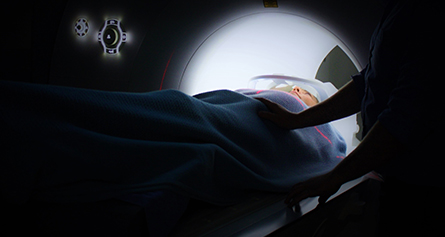Radiation therapy(also called radiotherapy)uses high-energy radiation to kill cancer cells or stop them from growing. Radiation therapy can be an effective treatment for early stage cervical cancers. However, in early cervical cancer, it is more commonly used as extra treatment after surgery for patients at highest risk for recurrence of their cancer(such as when the tumor might have spread beyond the cervix). Radiation is also used to treat larger or higher stage cancers where it is actually better than surgery. Your individual need for radiation therapy will be determined using information from your staging tests, examinations, and surgery, if an operation was performed from findings at the time of your evaluation.

Two types of radiation therapy are used to treat cervical cancer. Radiation therapy for cervix cancer is most often given in combination with chemotherapy.
- External radiation therapy uses a machine that directs the radiation toward a precise region of the body. The therapy is usually given daily, Monday through Friday, for about six weeks. Radiation does not hurt during the treatment and only takes a few minutes each day. You can be treated at a clinic, hospital or radiation oncology office, and typically you return home each day after treatment.
- Internal radiation therapy(also called brachytherapy)involves placing a small capsule of radioactive material inside the vagina or near the cervix. This procedure can sometimes be performed on an outpatient basis and other times it requires hospitalization for a night or two. Medication is given to alleviate the discomfort from these procedures. During the time the radiation capsules are in, your family may only be allowed limited time next to you, but the radiation capsules are removed prior to going home.
- Side effects of radiation The side effects of radiation therapy depend on the dose used and the part of the body that is being treated. Common side effects for cervix cancer patients are listed below.
Early side effects(occur during treatment):
- Dry, reddened skin in the treated area
- Fatigue
- Anemia
- Diarrhea and nausea
- Discomfort when urinating
Most of these side effects are temporary. Not everybody experiences all of these side effects. Be sure to talk with your treatment team members about any side effects you experience. They can help you find ways to manage them.
Later side effects from radiation therapy include:
- Narrowing of the vagina and loss of lubrication
- Urinary frequency(radiation cystitis)
- Diarrhea(radiation colitis)
- Early or sudden menopause(if the ovaries stop working)
- Skin thickening and irritation
Be sure to talk with your health care team about what you can do to reduce your risk of having long-term side effects from the radiation. Some long-term complications, for example narrowing of the vagina, are better prevented than treated once they are sever.